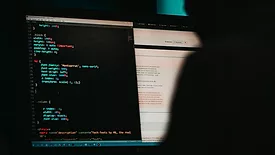Home » cyber attack
Articles Tagged with ''cyber attack''
Integrated Solutions
Always-on defense: The critical role of monitoring in manufacturing cyber protection
Manufacturing remains a prime target for cyber threat actors due to several factors.
November 11, 2024
Education & Training
The multi-faceted threat of domestic terrorism
Domestic terrorism poses a number of risks — both physical and cyber.
August 8, 2024
Sign-up to receive top management & result-driven techniques in the industry.
Join over 20,000+ industry leaders who receive our premium content.
SIGN UP TODAY!Copyright ©2026. All Rights Reserved BNP Media.
Design, CMS, Hosting & Web Development :: ePublishing


.webp?height=168&t=1736171786&width=275)





.webp?height=168&t=1729186960&width=275)
.webp?height=168&t=1723570717&width=275)




